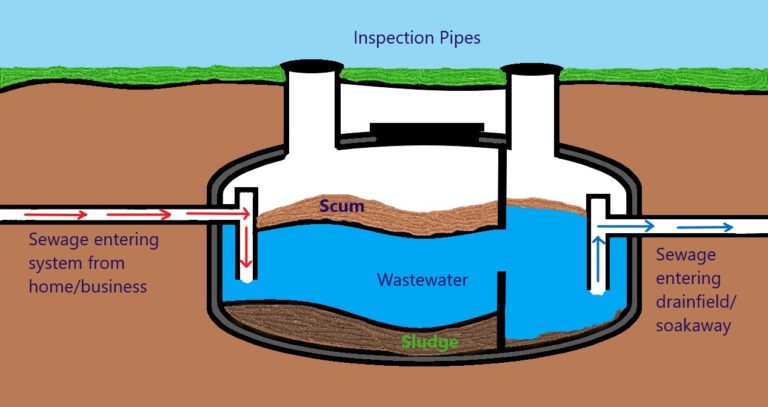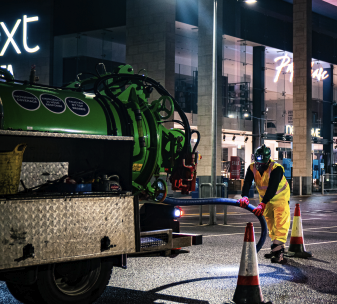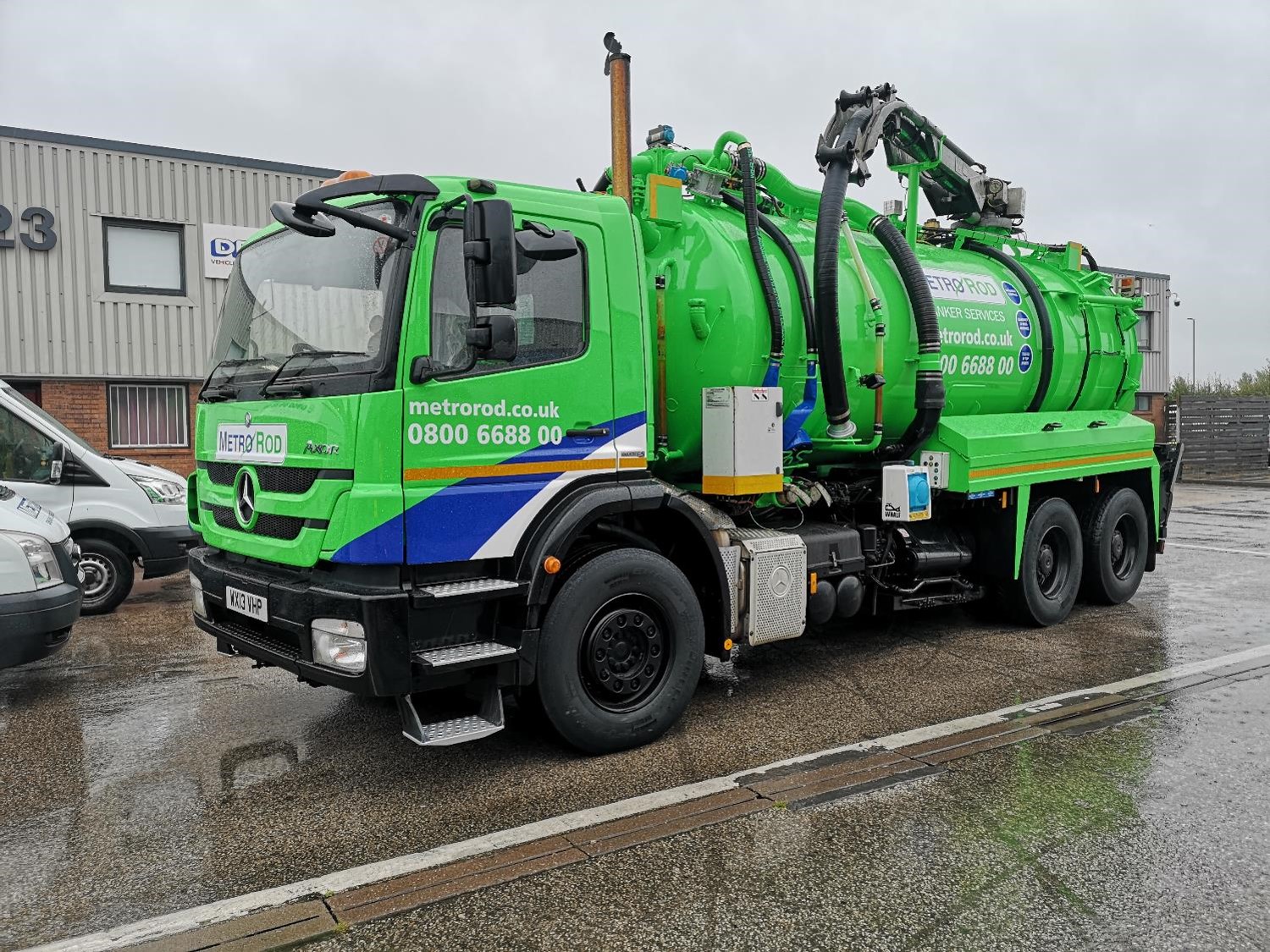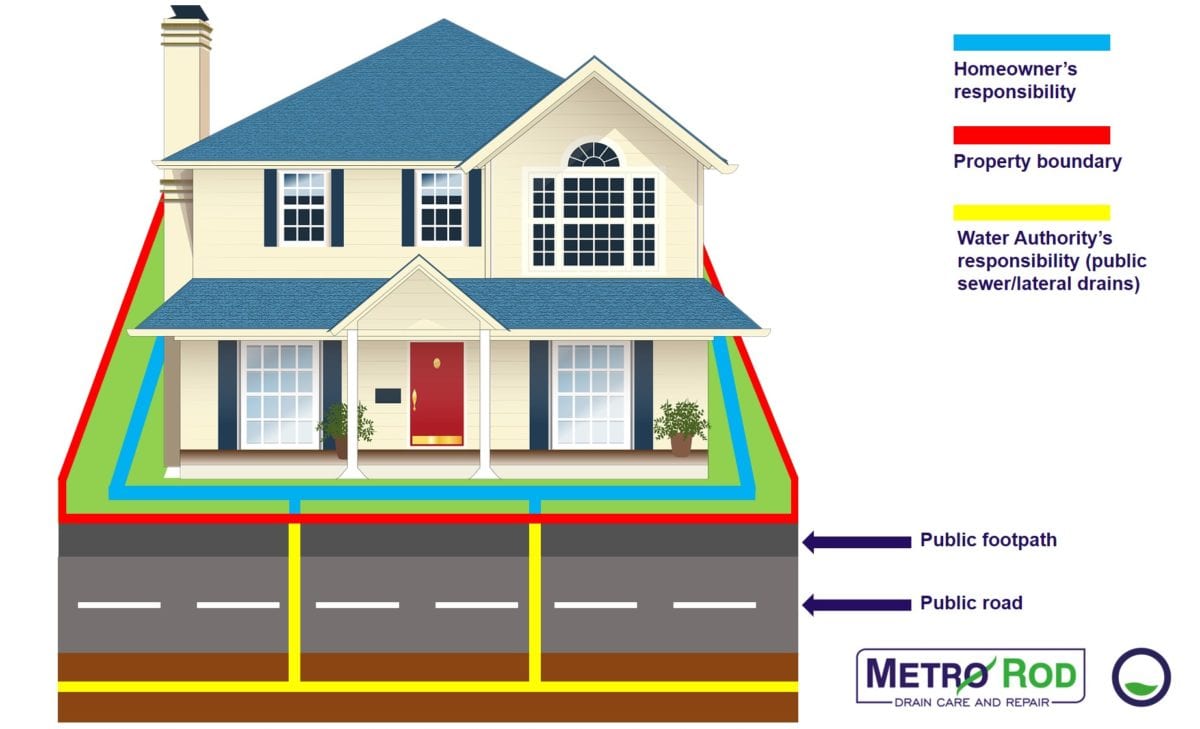Septic Tanks are something that we in the drainage industry come across on a daily basis. Particularly in North Wales, where homes and businesses can be more remote and too far off the beaten track to be connect to a main line sewer system.
They're actually a very efficient way to rid your home of waste, but require a lot of maintenance to keep the system running.
So, how do septic tanks work?
Septic tanks are typically made of plastic or concrete. When the waste water enters the take via the pipework which runs from you home or business, solids will sink and scum will float due to the density of each compared to the water in the tank. The solids at the bottom of the tank are anaerobically digested (this is basically a process in which solids are naturally broken down to produce biogas or fertiliser). The remaining liquid flows through the first chamber, into the second where further breakdown occurs and from there it flows out of the tank and into a drain field or soakaway to be absorbed through the ground/soil.

Typical Septic Tanks Layout
Do you run/want to run a septic tank system?
A lot of things need to be considered before installing your own septic tank system. Firstly, you need to be sure that you have enough space around your home/business to install one. The drain field or soakaway will need a significant amount of space to allow the exiting water to drain away effectively. The drain field is proportional to the size of the tank and how much waste is going to be put through it. For example, a drain field for a house with 4 people will be smaller than the space required for a drain field for a large commercial building with 20 people working in it.
Secondly, you'll require a percolation test to be carried out on the soil in which the drain field or soakaway is built. This is essentially a soil test to ensure the soil is porous enough and in decent enough condition to allow the exiting water to seep into it, without causing the soil to become a bog or flood.
Be aware!
There is so much more to be considered when running your home waste system from a septic tank. Even more so, now that the laws regarding installation and maintenance of them has changed! If you have a septic tank that discharges directly to a surface water (ditch, stream, river, etc.) you must replace or upgrade your septic tank treatment system to a full sewage treatment plant by 1 January 2020. We are all now, more than ever, extremely conscious of just how much we need to be protecting our environment. Especially when it comes to our waste water.
When Fatbergs went viral across the world when one was discovered in London weighing in at a whopping 130 tonnes. It took a total of 8 weeks to break down! Also, it brought to light just how much we need to be caring more for our waste water systems.
So make sure you're clued up on the new laws by heading over to the government website here, to ensure your septic tank system is compliant!
Did you know we can assist with your septic tank management? Including assistance with modifying them to be in keeping with the new laws. We can also assist in emptying them on a regular basis with the use of our tankers!
Are you in need of a reliable and efficient drainage or plumbing solution? Metro Rod Deeside can help you and your businesses or homes with our drainage and plumbing services! Check out our contact details below!
Call us on; 0808 250 9915
Visit our websites; North Wales Area
Email Us; deeside@metrorod.co.uk
Find Us On; Twitter or Facebook or LinkedIn
Or connect with Eleri, our Marketing Manager on LinkedIn too!
Metro Rod Deeside operate 24/7. Calls will always be answered directly by an experienced on call manager who can start diagnosing any drainage problems. Our on call manager will also assign you to an engineer who can be on site within a matter of hours. We operate throughout North Wales, including Anglesey, Chester and Wirral areas. We’re able to deal with problems such as;
- Blocked drains (internal or external)
- Sink, urinal and mainline drain blockages
- CCTV surveys of drainage systems
- Tanker Services
- Graffiti Removal
- Robotic Cutting
- Drain repairs – no dig or excavations
- Preventative maintenance

Talk to your local Metro Rod specialist
We are always happy to arrange a free site assessment and no obligation quotations for any work you might need. Alternatively, you can call our emergency hotline number on 0800 66 88 00
Get in touch Drainage Services


